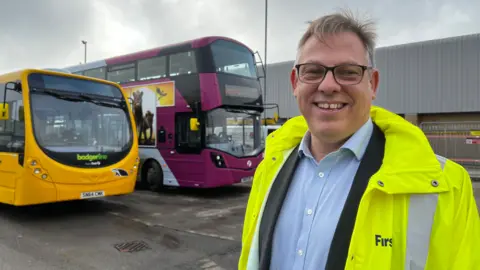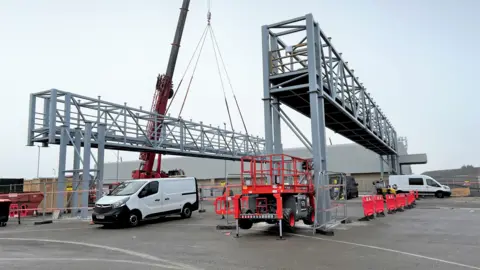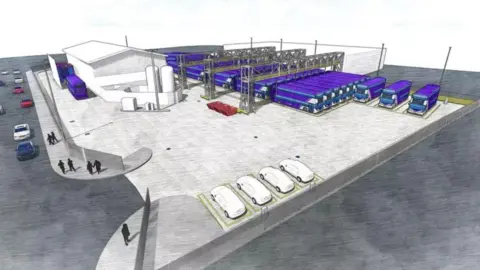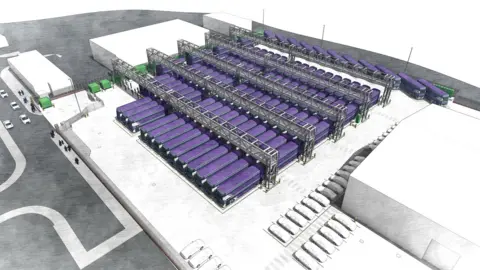Depots being built for fleets of electric buses
 BBC
BBCA bus company is building a charging depot in preparation for a fleet of electric buses, as part of a £15m sustainable transport scheme.
The bus depot in Weston-super-Mare, North Somerset, is being transformed by First Bus ahead of launching 24 new electric buses on the local network.
In addition, £44m is being invested in electrifying the operator's Hengrove depot in Bristol, in preparation for 74 electric buses arriving on the city's network.
The zero-emission buses will replace older diesel models, saving 75 tonnes of CO2 per bus each year, the company said, adding that across the entire fleet, it equated to taking 5,250 cars off the road.

Work at the Weston site is expected to be completed by March, with the electric buses arriving soon after. The Hengrove site is expected to be completed in July.
As well as supplying the sites with increased power, the projects will see almost 400 tonnes of steel used across multiple gantries, which will distribute power to charge the new buses.
Both projects will cost First Bus £59m in total, with £8.7m being invested from the government's Zero Emission Bus Regional Areas (ZEBRA) scheme.
 First Bus
First BusDoug Claringbold, West of England managing director for First Bus, said the project would be a big step towards meeting the company's commitment of having a zero-emissions fleet by 2035.
They would also be cleaner, quieter, and kinder to the environment, he said.
"What that brings is not just the environmental benefits, in terms of air quality and reduced carbon emissions, but it also provides a much better experience for our customers and drivers," he said.
"We operate over 600 electric buses across the UK and their experiences are really good. They are proving incredibly popular."
 First Bus
First BusCommercial director Rob Pymm said the electric buses will also be more reliable than the current diesel vehicles.
"They don't break down," he said.
"There's less that can go wrong and the customers are going to see that. You want your bus to get you from A to B every day, and electric buses can do that."
The multi-million pound investment into the region comes after passenger numbers increased by more than five million from January to November 2024.
Follow BBC Bristol on Facebook, X and Instagram. Send your story ideas to us on email or via WhatsApp on 0800 313 4630.
